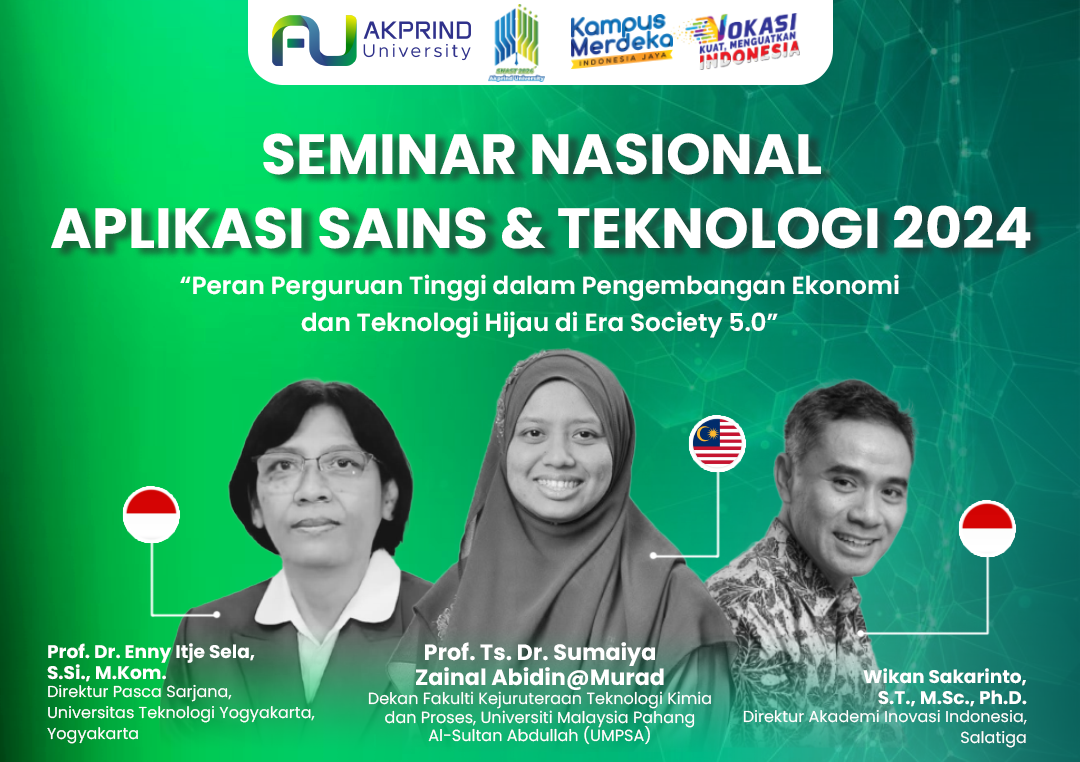ANALISIS KOMPARATIF KEKUATAN TARIK DAN KETAHANAN LUNTUR WARNA PADA VARIASI KONSTRUKSI KAIN TIE DYE PRODUKSI UMKM SURAKARTA
DOI:
https://doi.org/10.34151/prosidingsnast.v1i1.4942Keywords:
tear strength, tensile strength, tie dyeAbstract
Testing and analyzing fabric quality is crucial in the fashion industry to ensure regulatory compliance and meet consumer expectations. Tie-dye fabrics, as increasingly popular products, require specific testing to ensure their quality and durability. This study aims to analyze and compare the strength characteristics of grey fabrics made from rayon and cotton before and after stamp batik and tie-dye treatments, as well as evaluate their color fastness to soap washing. Standard testing methods were employed to measure tear strength, tensile strength, and elongation in both weft and warp directions. Results showed that rayon fabric exhibited higher tear strength (1728 g weft, 1354.67 g warp) compared to cotton (1237.3 g weft, 1194.67 g warp). However, cotton demonstrated superior tensile strength (126.2 N weft, 293.64 N warp) compared to rayon (103.6 N weft, 189.006 N warp). Fabric elongation was higher in rayon (23.37% weft, 14.08% warp) compared to cotton (10.08% weft, 11.48% warp). Stamp batik treatment increased tear strength in rayon but decreased it in cotton, while both fabric types experienced decreased tensile strength and increased elongation. Tie-dye treatment resulted in decreased tear and tensile strength but increased elongation in both fabric types. This research provides valuable insights into the changes in fabric strength characteristics following stamp batik and tie-dye treatments, which can serve as a reference for the textile industry in optimizing production processes.
References
Bigambo, P., Wellah, H., Ngaga, H., Kimbokota, S., & Mrango, M. (2024). Turmeric Dyeing of Cotton Fabrics using Tie-Dyeing Techniques. Tanzania Journal of Science, 49(5), 1064–1078. https://doi.org/10.4314/tjs.v49i5.11
Failisnur, F., Sofyan, S., & Silfia, S. (2021). Colorimetric properties of batik fabrics colored using gambier liquid waste. Journal of Physics: Conference Series, 1940(1), 012092. https://doi.org/10.1088/1742-6596/1940/1/012092
Fatimah, S., Kencana, S. P., ’Aarifah, S., & Eskani, I. N. (2023). Effect of ZnO Addition on The Characteristics of Cotton Fabric in The Batik Fabric Dyeing Process. Eksergi, 20(3), 210. https://doi.org/10.31315/e.v20i3.9895
Kartikasari, E. (2021). Pengaruh Fiksator Pada Zat Pewarna Alam Ekstrak Daun Kopi Terhadap Ketahanan Luntur Warna Jumputan. Jurnal KELUARGA, 07(02). http://jurnal.ustjogja.ac.id/index.php/keluarga/index
Laksmi, L., & Rizkiah, R. (2020). Pengaruh Konsentrasi Senyawa Dihidroksi Etilena Urea (Akrofik NZK) Pada Proses Finishing Kain Kapas 100% Dengan Metode Pemanas Awetan Suhu Rendah (Low Curing) Terhadap Stabilitas Dimensi, Kekuatan Sobek Dan Kekuatan Tarik. Sainteks: Jurnal Sain Dan Teknik, 2(1), 19-27. https://doi.org/https://doi.org/10.37577/sainteks.v2i1.220
Maghfiroh, L., & Widowati, D. (2020). Kualitas Hasil Pencelupan Kain Mori Primissima Menggunakan Limbah Kulit Buah Naga Merah (Hylocereus polyrhizus). In FFEJ FASHION AND FASHION EDUCATION JOURNAL (Vol. 9, Issue 1). https://journal.unnes.ac.id/sju/index.php/ffe
Matussilmi, F. I., & Asiatun, K. (2023). Pengaruh Variasi Tunjung Terhadap Ketuaan Warna Motif Jumputan Menggunakan Pewarna Merbau. https://journal.uny.ac.id/index.php/ptbb/article/view/67969
Nahdiyah, A., & Kusumastuti, A. (2024). Quality Of Tie Dye Using Papaya Leaves Extract (Carica papaya L.). In FFEJ FASHION AND FASHION EDUCATION JOURNAL (Vol. 13, Issue 1). https://journal.unnes.ac.id/sju/index.php/ffe/index
Nur Maida, A. (2022). Teknik Tie Dye menggunkan Daun Pepaya dan Pemutih Pakaian pada Pembuatan Mukena Anak The Tie Dye Technique Using Papaya Leaves and Bleach in Making Children’s Mukena. In Journal HomeEc (P-ISSN (Vol. 17, Issue 1).
Permatasari, M. A., Suprapto, Y., Setiawan, D., & Setyowati, D. L. (2021). Implementasi Interaksi Sosial dan Kearifan Lokal dalam Konservasi Lingkungan Kampung Sasirangan Banjarmasin. Jurnal Kawistara, 11(2), 143. https://doi.org/10.22146/kawistara.v11i2.62946
Rumiyati, V. S. P., Putranto, A. P. E., Amar, A., Nazar, Y., & Oktaviani, B. (2022). Identifikasi Konstruksi dan Kualitas Kain Mori Sebagai Bahan Baku Pembuatan Batik. Jurnal Tekstil: Jurnal Keilmuan Dan Aplikasi Bidang Tekstil Dan Manajemen Industri, 5(1), 36–45. https://doi.org/10.59432/jute.v5i1.21
Snježana, Brnada., Rajna, Malinar., Tihana, Dekanić., Sandra, Flinčec, Grgac. (2019). Influence of textile care processes on the mechanical properties of the woven fabric. AUTEX2019 – 19th World Textile Conference on Textiles at the Crossroads, 11-15 June 2019, Ghent, Belgium
Widowati, Sholikhah, R., Atika, Sudiyono, & Fidloiyah, K. (2021). The effect of naphthol dyes composition on the results of shibori. IOP Conference Series: Earth and Environmental Science, 700(1). https://doi.org/10.1088/1755-1315/700/1/012036
Downloads
Published
Issue
Section
License
Copyright (c) 2024 Galuh Yuli Astrini

This work is licensed under a Creative Commons Attribution-ShareAlike 4.0 International License.







